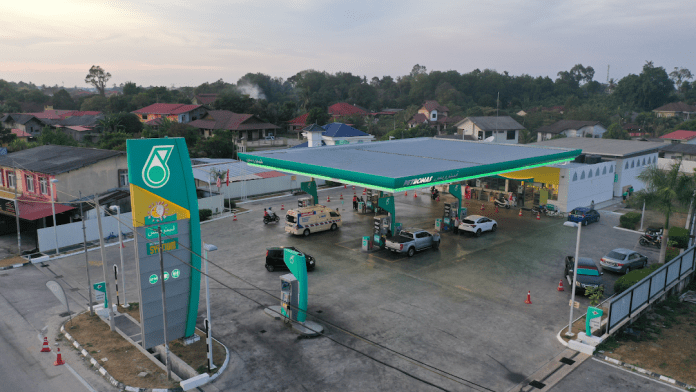Saudi Aramco is negotiating with Shell to purchase the latter’s 950 retail fuel stations in Malaysia for c.US$1bn, which could be finalised in the coming months. It was also reported that Shell was also working towards selling its Singapore refinery and petrochemical complex, which supplies its Malaysian retail stations.
CGS International (CGS) in its Company Note today (May 8) cited Aramco saying on its website that its affiliates “own and have access to more than 11,000 retail fuel stations worldwide with locations in China, South Korea, the US, and Japan”, and it also has a JV with TotalEnergies to plant new retail fuel stations in Saudi Arabia.
If Aramco purchases Shell’s retail fuel stations, CGS expects Aramco to supply the stations from its 50% share of the new Pengerang refinery’s output.
While Petronas Dagangan Berhad (PDB) has more than 1,000 retail fuel stations in Malaysia, CGS thinks that Shell’s 950 stations probably register higher sales because Shell had a first-mover advantage in building up the retail fuel station network in the country and had very early on set up multiple strategic locations in high-traffic areas.
Shell also enjoys very strong brand recognition in Malaysia which could heighten competition and promotional activity in Malaysia. If the Aramco-Shell deal happens, CGS thinks that Aramco will rebrand the stations and will probably offer promotions to retain existing customers and attract new ones.
When Petron Corp purchased ExxonMobil’s Esso stations in Malaysia in 2012, Petron Malaysia (PetronM) built up its network from 550 stations in 2012 to 770 stations today, rebranded the stations, and launched multiple promotional campaigns with loyalty points and prizes, according to its website.
The net result was that PDB’s retail fuel sales fell 2% yoy in 2014 and fell 9% yoy in 2015; PDB also incurred higher advertising and promotional costs in order to keep up with PetronM.
Aramco could pursue a similar strategy as PetronM which could be a potential de-rating catalyst for PDB.
Potential fuel subsidy reductions may hurt PDB’s sales volume. Another potential de-rating catalyst is the high likelihood the Malaysian government will reduce the total volume of fuel subsidies from mid-2024F.
CGS said diesel subsidies may be restricted to hauliers and certain types of goods vehicles by way of a fleet card system, and diesel pump price may rise from RM2.15/litre to RM3.15 if unsubsidised, while price hikes for RON95 motor gasoline may be phased in and ultimately rise from the current RM2.05/litre to an unsubsidised price of c.RM3.30.
CGS thinks higher pump prices could encourage carpooling and disincentivise the unlawful moving of subsidised fuel to foreign countries, which may ultimate reduce PDB’s sales volume.









